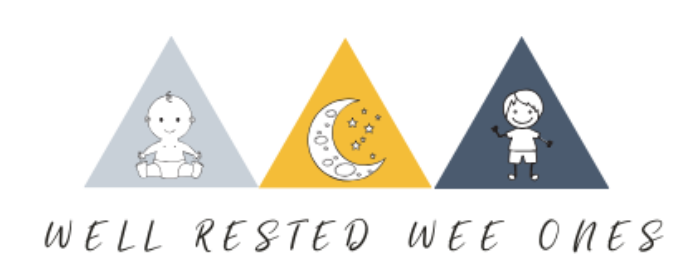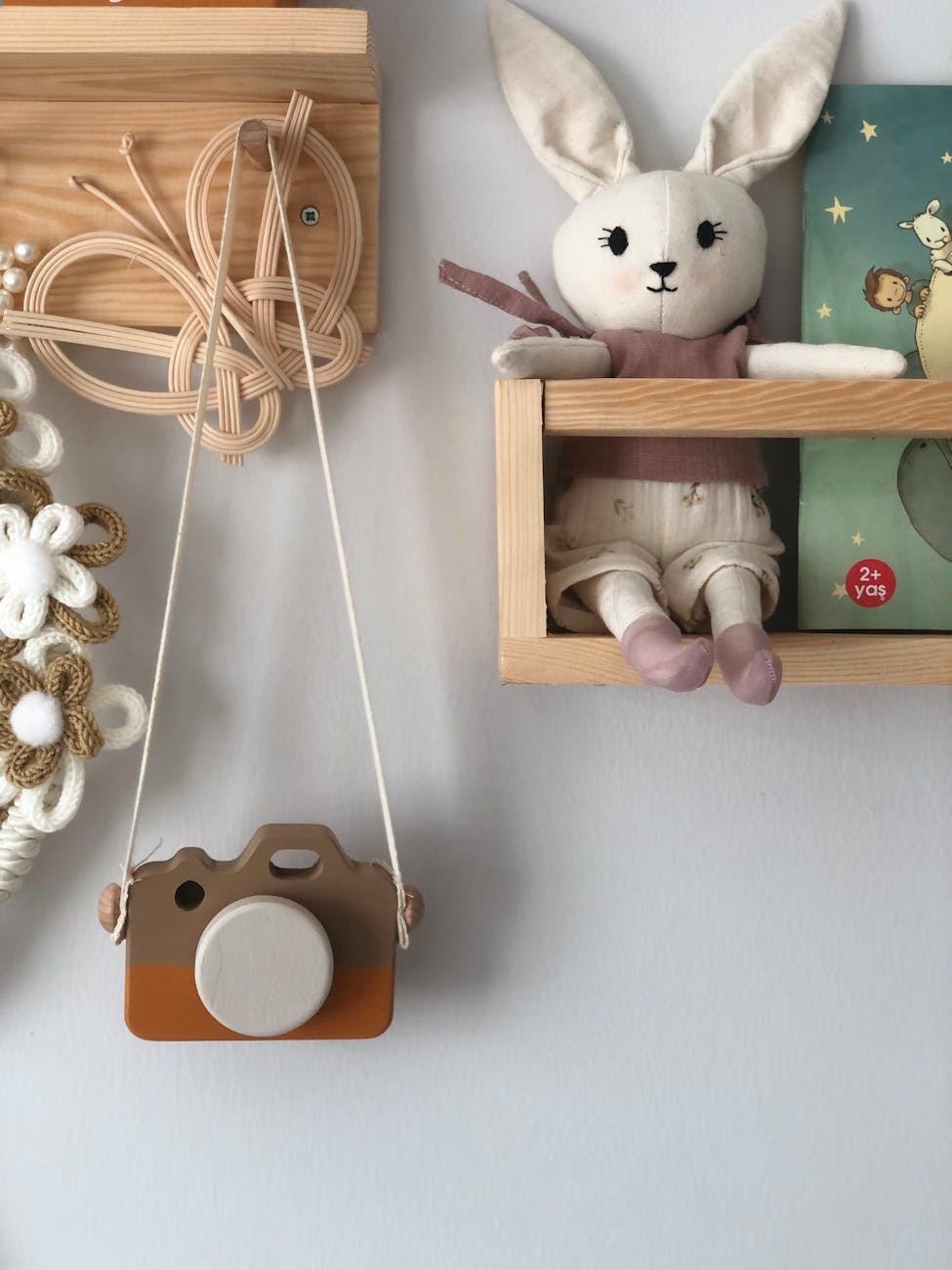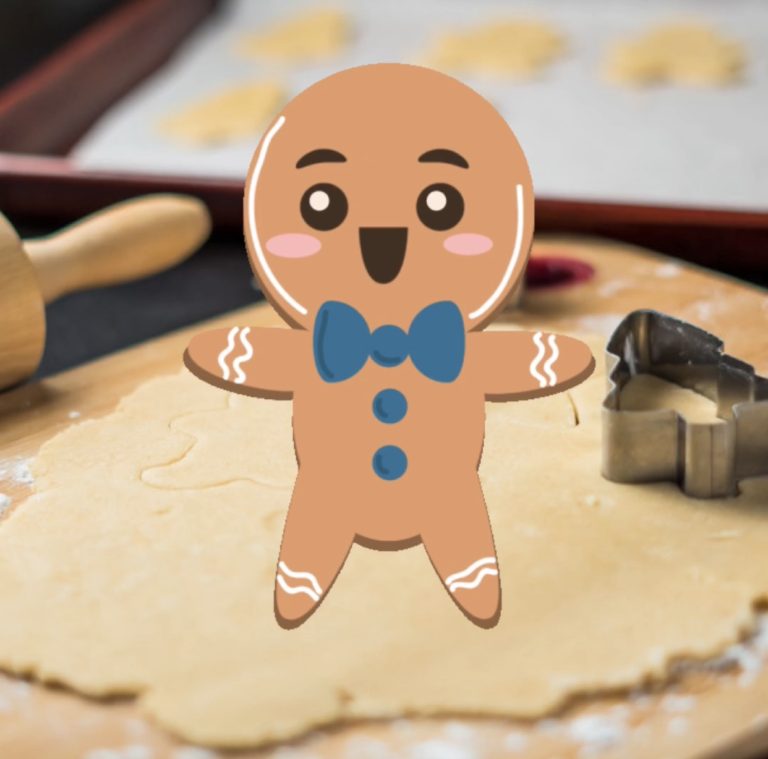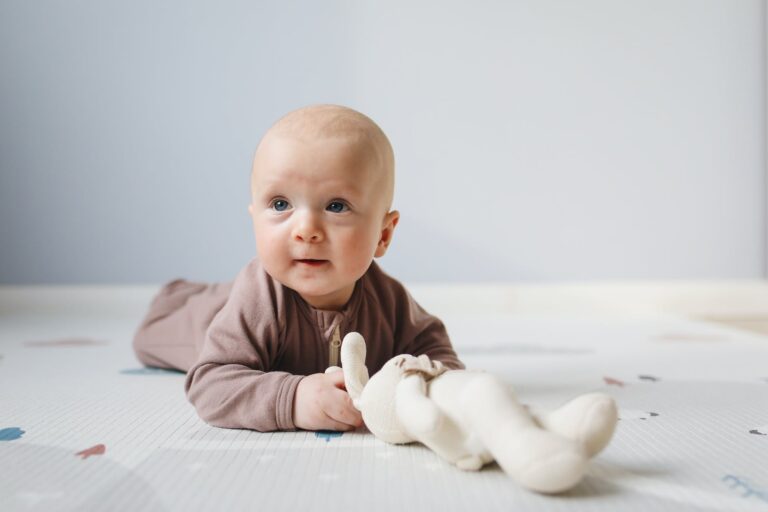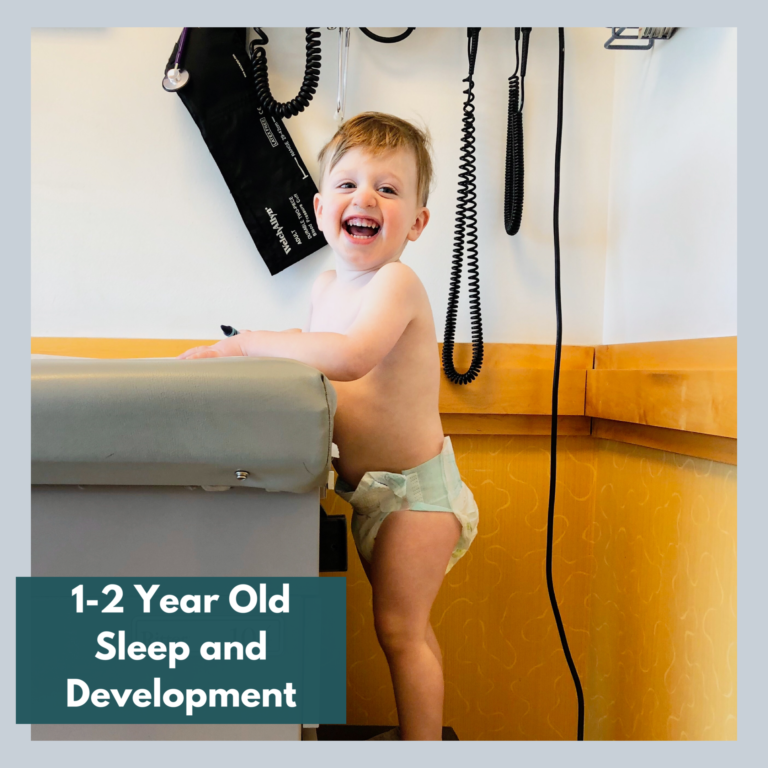tips to introduce a lovey to your baby
Tips to introduce a lovey to your baby
Loveys are gold to me! They help with independent sleep and help ease separation anxiety. We’re giving you our expert tips to introduce a lovey to your baby.
when to introduce a lovey to your baby
When can you introduce a lovey to your baby for sleep?
Around the age of 12 months, is a safe age to introduce a lovey to your baby in the crib.
Separation anxiety can peak, BIG teeth are coming through, your baby is learning, growing and beginning to communicate faster than ever and they may be showing new signs of protest at sleep times.
PRO TIP: Before 12 months, I recommend introducing a lovey into your sleep routine at bedtime and naptime. Pick a small soft item that your baby can hold onto and snuggle with as you read books, rock to a lullaby, and go through your wind down routine. This helps to foster attachment and connection with the item.
Once your baby is close to 12 months old, they will be familiar with the item and will be more likely to use it as a way to comfort themselves and will help your baby feel more secure while in their crib.
What is a lovey
This may look like a traditional lovey with the soft animal head with flowing blanket attached, a teddy bear, small blanket or other well-loved stuffed animal that starts to hold a special place in your child’s heart.
From a safety standpoint, ensure the lovey is free of objects that come off like buttons.
My favorite lovey is from Bunnies by the Bay. My boys were each gifted these as newborns and grew attached to them early on. My oldest son still likes to hold and snuggle his before bed!
when to introduce other comfort items to your baby and toddler
A Lovey: The AAP recommends the crib should be free of all objects until 12 months of age. Around 12 months is a safe time to introduce into the crib
Pillow: Recommended to be introduced at 2 years or older
Blanket: Can be introduced as early as 18 months, however, it should not replace the sleep sack. The sleep sack also serves multiple purposes and most likely your child will not keep the blanket on their body during sleep.
transitional tool to soothe for sleep
Loveys can help with big life changes like the arrival of new siblings, a move or the start of daycare/school.
It is never too late to present your child with a lovey as older children can benefit from this newfound friend too. They may find a strong sense of security and companionship with the lovey to help them through big adjustments and changes.
additional tips and benefits to introducing a lovey
- Gives your baby something to HUG! There is so much value in having something to squeeze. Even as adults we can benefit from a hug. Did you know hugs are proven to reduce stress by releasing oxytocin (the love hormone) and reducing cortisol?
- Becomes part of the ROUTINE: Just as a familiar song or book, a lovey will help cue your baby’s brain that it is time for sleep. They will look for it, hold it and get it ready for bed the older they get and greater the bond is formed.
- Calms New Fears: The older your child gets, the more fears and worries they develop. They may verbally communicate they are afraid of the dark or monsters under their bed. This is a perfect time to introduce a lovey if you haven’t already to help calm them by giving them a “friend” who stays with them throughout the night.
tips to introduce a lovey to your baby
- Buy Two of the Same: I cannot stress this enough! What if the beloved lovey goes missing or is dropped out in public without anyone noticing. For peace of mind, have a second one at home in case of this emergency!
- Can give Choice: If your child is older, you could allow them to pick out which lovey they would like to use during sleep. Any time we can give our children choice, it helps them take ownership of their sleep routine and feel empowered that they were able to make the important selection.
- Mom sleep with it first- This will make the lovey smell like MOM! If your baby is having separation anxiety, this could be a very important step in helping your little one take to the new lovey.
- Role Play– Show your child that the lovey sleeps just like they do. The older your baby gets the more powerful modeling sleep behaviors can be, especially when using the newly cherished lovey!
Include a lovey in both the nap and bed routine- Lovey should be a part of all sleep times! More than likely, your child won’t forget.
what to do if if they don’t care for it?
Your baby throws it out of the crib– Only replace it one time. After that, if they continue to throw it, leave it until the next morning. Otherwise, this can quickly create an unwanted game at bedtime to get you back in the room more frequently.
Doesn’t take to it– Just like new exposure to foods, it may take time! Don’t give up. Stay consistent with including lovey in the crib. Any new change can take 2-4 weeks to build familiarity.
what resources do you have to support my baby with sleep?
If you’re struggling with multiple wake ups, bedtime or nap resistance, or short naps, I have a class for you.
The 4-24 Month Well Rested Collection will walk you step-by-step through a completely customizable sleep training experience. In just a few weeks, your baby will be getting 11-12 hours of independent night sleep, AND you’ll have a plan to navigate any future regressions or bumps in your journey.
I’ll also help you set up a daytime routine and nap schedule that fits your family’s lifestyle and values. And you’ll get age-specific guidance to meet your baby right where he or she is developmentally at every stage from now until your baby turns 2.
Want daily personalized support? We have 1:1 sleep coaching programs to help! We work with your family for 2 weeks to help your baby with both overnight sleep and nap challenges. You don’t have to navigate your sleep journey alone with our Ultimate Sleep Plan.
